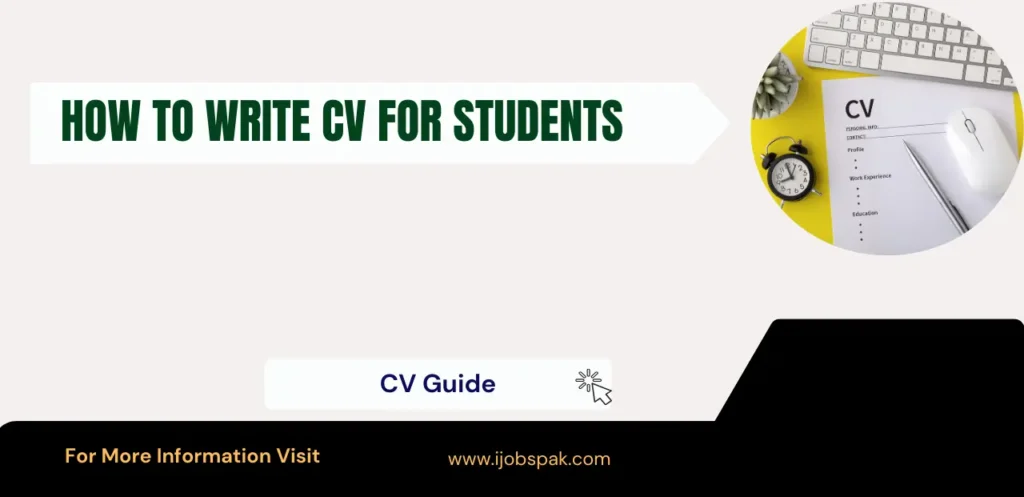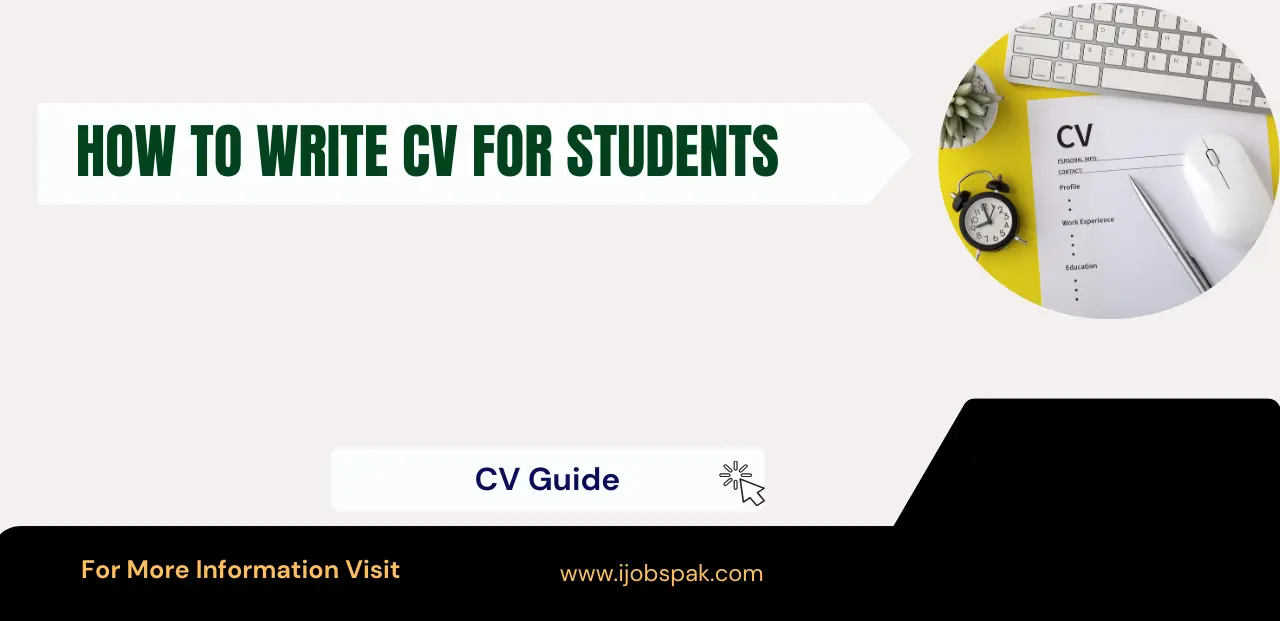Creating a CV (Curriculum Vitae) can feel challenging, especially if you’re a student with limited or no job experience. However, don’t stress! Your CV is an opportunity to highlight your strengths, education, and any relevant activities or projects that demonstrate your potential to employers, internship providers, or scholarship panels. Here’s a straightforward guide to help you craft a compelling CV.How To Write CV For Students
How to Write a CV for Students
- What is a CV and Why Do You Need One? A CV is a document that presents your background, education, and the skills you’ve developed. Think of it as a tool to introduce yourself to employers, academic institutions, or scholarship organizations. For students, it’s a great way to showcase your academic achievements, talents, and any practical experiences in an organized and professional format.
2. Key Sections to Include in Your CV
| Section | Description |
|---|---|
| Personal Information | Your full name, contact number, email address, and LinkedIn (if available). |
| Objective Statement | A brief paragraph outlining your goals and reasons for applying. |
| Education | Include details of your current course or most recent academic qualifications. |
| Skills | List both technical (hard) skills and personal (soft) skills you’ve developed. |
| Work Experience | If applicable, include part-time jobs, internships, or volunteer work. |
| Achievements & Awards | Mention any significant accomplishments, honors, or awards. |
| Extracurricular Activities | Highlight involvement in clubs, sports, or other non-academic activities. |

How to Write a CV for Students
Personal Information
Start your CV with basic details like:
- Full name
- Phone number
- Email address
- LinkedIn profile (if available)
Keep it concise and professional.
Objective Statement
This section is a brief paragraph at the top of your CV that provides insight into your career aspirations and why you’re seeking the job or internship. It helps recruiters understand your motivation.
Example:
“I am a dedicated business student eager to apply my marketing skills in a dynamic internship environment and gain real-world experience to further my career.”
Education
List your education in reverse chronological order, including:
- The name of your institution
- The degree or program you’re pursuing
- Expected graduation date or the year you completed your degree
Example:
Bachelor of Arts in Business Administration
XYZ University, Expected Graduation: 2026
Skills
In this section, categorize your skills into two types:
- Hard Skills: Technical abilities such as software proficiency or coding languages.
- Soft Skills: Personal qualities such as teamwork, communication, and problem-solving.
Examples:
- Microsoft Office (Excel, PowerPoint, Word)
- Effective time management
- Strong problem-solving abilities
- Collaborative teamwork
Work Experience (If Any)
If you don’t have formal work experience, mention any part-time jobs, internships, or volunteer work. Focus on the skills and responsibilities you learned from these roles.
Example:
Intern
ABC Marketing Company, Summer 2023
- Assisted in content creation for social media platforms
- Managed customer inquiries and email responses
Achievements and Awards
This section allows you to showcase any noteworthy accomplishments, from academic honors to scholarships. It helps emphasize your dedication and achievements.
Example:
- Winner of XYZ University’s Science Fair, 2023
- Dean’s List, Fall 2023
Extracurricular Activities
Including extracurricular activities shows you’re an active, well-rounded individual. This could include involvement in sports, clubs, or volunteer initiatives.
Example:
President, Student Debate Club
XYZ University, 2022-Present
- Organized weekly debates and workshops
- Led the team to national competitions
3. Tailor Your CV for the Jo
When applying for a job or internship, it’s essential to personalize your CV to fit the specific role. Highlight the skills and experiences most relevant to the job description. For instance, if you’re applying for a marketing internship, focus on your communication skills, creativity, and any marketing-related coursework or projects you’ve completed.
4. Formatting Tips
To ensure your CV looks polished and professional:
- Keep the layout clean, using bullet points for readability.
- Use a professional font like Arial or Times New Roman (size 10-12).
- Avoid excessive colors or graphics; stick to a simple, easy-to-read format.
- Ensure there are no spelling or grammar errors.
5. Common Mistakes to Avoid
- Irrelevant Information: Don’t include personal details such as hobbies unless they are directly related to the job you’re applying for.
- Exaggerating Skills or Achievements: Be truthful about your abilities and accomplishments. Overstating your qualifications can backfire.
- Proofreading: Always review your CV to eliminate any spelling or grammatical errors.
6. Conclusion
Creating a CV as a student doesn’t have to be difficult. By following these straightforward steps, you can build a professional document that highlights your education, skills, and experiences. As you gain more qualifications or experience, remember to keep your CV up to date and tailor it to each position you apply for. Best of luck with your job search!
Also Read About How To Write CV For Students Applying To University
FAQs
What should I leave out of my CV?
Avoid adding personal details such as your age, marital status, or religion. Don’t list every job or activity you’ve ever done—focus on what’s most relevant to the position. It’s also best to steer clear of using casual or unprofessional email addresses (e.g., partyboy123@gmail.com).
Should I include references on my CV?
Including references is optional. If you choose to list them, provide the names and contact details of two or three people (such as a professor or employer) who can vouch for your qualifications and character. Always ask for their consent before adding them to your CV.
How should I format my CV?
Make your CV visually appealing and easy to navigate. Use a clean, professional font like Arial or Calibri in size 10-12 points. Opt for bullet points to organize your skills and experience, and ensure there is enough white space to avoid clutter. Use clear section headings that are easy to find.
